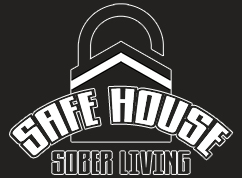Addiction recovery is a journey fraught with challenges, but it is also a path of profound transformation and self-discovery. At the heart of this transformation lies the indispensable duo of Rigorous Honesty and Accountability. For individuals striving to break free from the clutches of addiction, these virtues are not mere virtues; they are lifelines that guide them towards lasting recovery and a brighter future.
Rigorous Honesty: The Healing Truth
Facing Reality: Addiction often thrives in the shadows of denial and deceit. Rigorous honesty forces individuals to confront the stark reality of their situation. It starts with acknowledging the existence of the problem, the consequences of addiction, and the impact it has on one’s life and loved ones.
Self-Reflection: Honesty extends beyond admitting the addiction itself. It also involves taking a hard look at the underlying causes and triggers. It means being honest about the pain, trauma, or unresolved issues that may have led to seeking solace in substances. This self-reflection is a crucial step towards understanding and addressing the root causes.
Open Communication: In recovery, open and honest communication is essential. Sharing one’s struggles, fears, and triumphs with a support network, therapist, or group is a liberating experience. It fosters connection and empathy while dismantling the isolation that often accompanies addiction.
Rebuilding Trust: Trust is often eroded during the throes of addiction. Rigorous honesty is the bridge to rebuilding trust with family and friends. It shows a commitment to transparency and reliability, helping to mend fractured relationships.
Accountability: The Road to Redemption
Taking Ownership: Accountability in addiction recovery means taking full ownership of one’s actions and their consequences. It involves admitting the harm caused to oneself and others, without deflecting blame onto external factors.
Learning and Growth: An accountable individual uses setbacks as opportunities for learning and growth. Relapses are viewed not as failures but as moments to understand triggers and develop better coping strategies. Accountability allows for course correction and progress.
Supportive Network: In recovery, being accountable also means being accountable to one’s support network. This may include a sponsor, therapist, or a 12-step group. Sharing successes and setbacks with this network helps in staying on track and receiving guidance.
Setting Sobriety Goals: Accountable individuals set clear goals for their sobriety and recovery. These goals serve as a roadmap, providing direction and motivation. Meeting these goals and being accountable for them is a source of empowerment.
The Synergy of Honesty and Accountability
In addiction recovery, the synergy between rigorous honesty and accountability is unmistakable. Honesty is the catalyst for accountability, and accountability, in turn, reinforces honesty. This dynamic duo creates a solid foundation for sustainable recovery.
Rigorous honesty forces individuals to acknowledge their addiction and its underlying causes. It clears the path for accountability, where they take responsibility for their actions, seek support, and set goals for a drug-free life. As they remain accountable for their choices, they reinforce their commitment to honesty, creating a positive feedback loop that drives lasting recovery.
In the arduous journey of addiction recovery, rigorous honesty and accountability are not just principles; they are the guiding stars that illuminate the way towards healing, redemption, and a brighter future. Through these virtues, individuals can break free from the shackles of addiction and embark on a path of profound transformation, rediscovering their true selves along the way.


